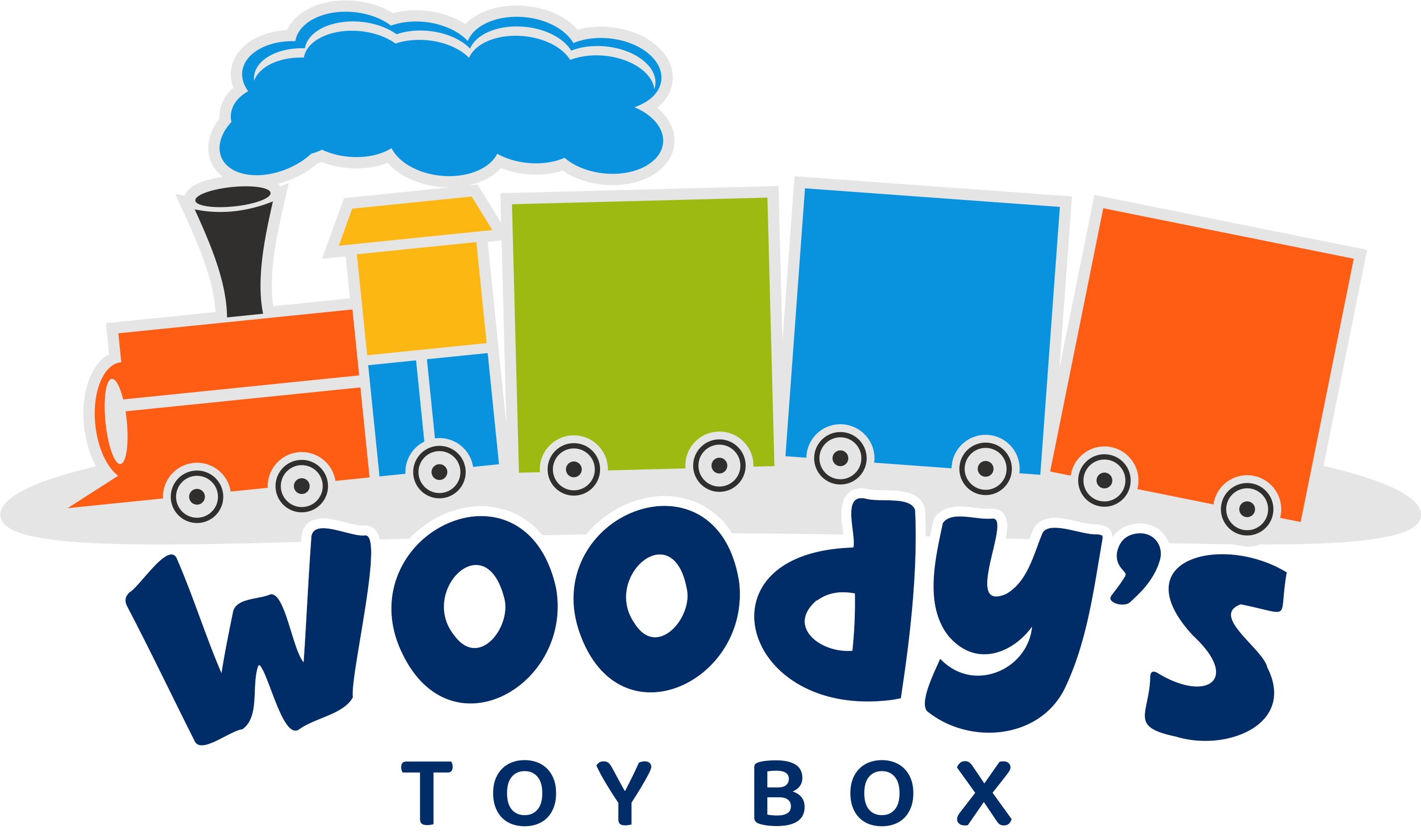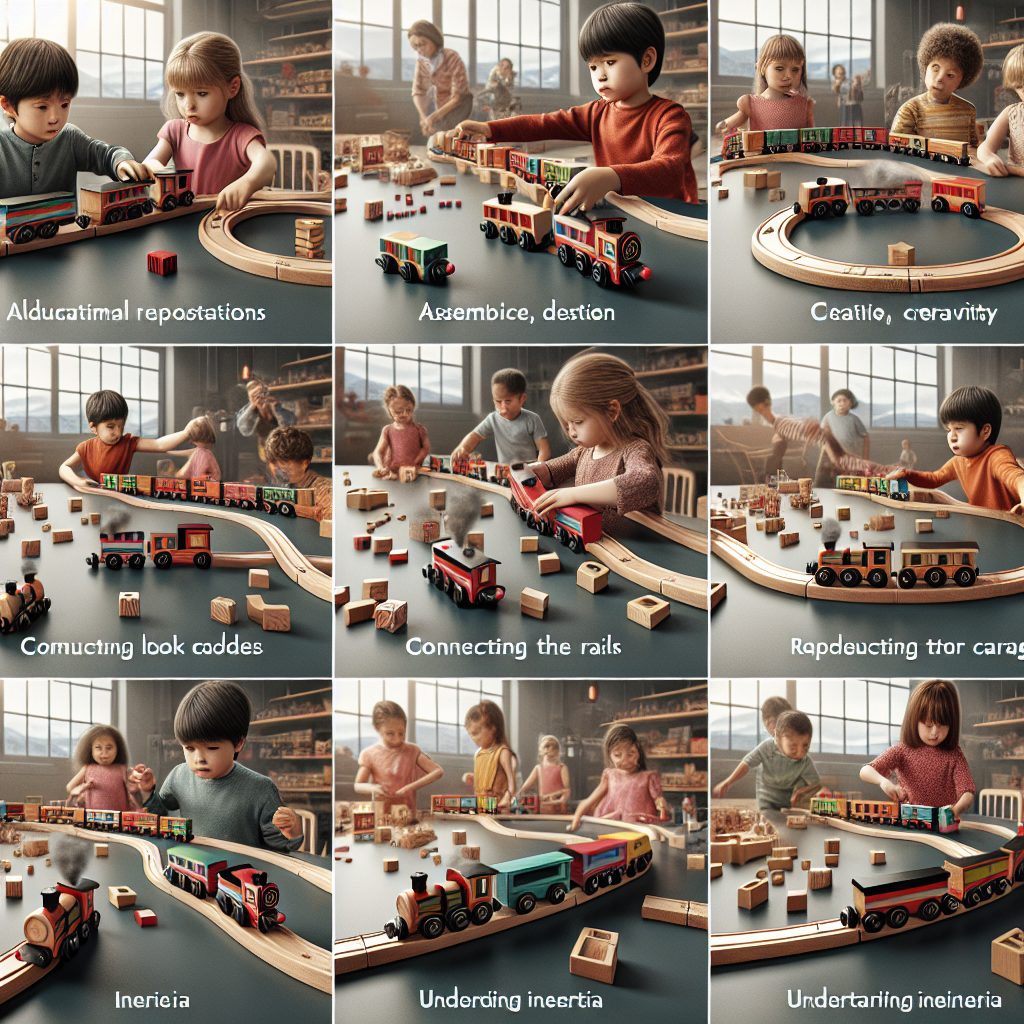Wooden train sets have been a beloved and timeless toy for children for generations. Not only do they provide hours of entertainment, but they also offer a multitude of educational benefits. The tactile nature of wooden train sets allows children to engage their senses and explore the world of cause and effect. As they assemble and connect the tracks, children develop problem-solving skills and spatial awareness. Additionally, wooden train sets help children enhance their fine motor skills as they manipulate the trains and accessories. With these unique features, it is no wonder that wooden train sets have become a staple in early childhood education.
Moving forward, this article will delve into the key takeaways regarding the educational benefits of wooden train sets. First and foremost, we will explore how these toys foster creativity and imagination in children. Wooden train sets provide an open-ended play experience, allowing children to create their own stories and scenarios. As they arrange the tracks and design their own layouts, children are encouraged to think critically and develop their storytelling abilities. This imaginative play not only stimulates their minds but also allows them to express their thoughts and emotions in a safe and engaging manner.
Stay tuned as we further explore the cognitive benefits of wooden train sets, such as improving problem-solving skills and enhancing logical thinking. We will also delve into how these toys promote social interaction and cooperation among children. By discussing these key takeaways, we aim to highlight the value and importance of incorporating wooden train sets into early childhood education.
Key Takeaways
1. Development of fine motor skills: Playing with wooden train sets requires children to manipulate the tracks, connectors, and train cars, improving their hand-eye coordination and fine motor skills.
2. Encourages imaginative play: Wooden train sets provide an open-ended play experience that stimulates children’s creativity and allows them to create their own stories and scenarios, fostering their imaginations.
3. Enhances cognitive abilities: Building and designing train tracks helps children develop spatial awareness, problem-solving skills, critical thinking, and logical reasoning as they figure out how to connect the pieces and create a functioning system.
4. Supports language development: Through playing with train sets, children can engage in verbal communication with their peers and adults, expanding their vocabulary, sentence formation, and communication skills.
5. Promotes social interactions: Wooden train sets are often enjoyed in groups, promoting social skills such as sharing, taking turns, cooperation, and negotiation, as children interact and play together, fostering important social and emotional development.
Educational Benefits of Wooden Train Sets: How can they Enhance Learning?
Enhancing Cognitive Skills
Wooden train sets provide children with an opportunity to develop and enhance their cognitive skills. As they build and design the train tracks, they are engaging in problem-solving and critical thinking. This process requires them to plan, analyze, and make decisions, all of which contribute to the development of their cognitive abilities. By manipulating the train cars and navigating the tracks, children also improve their hand-eye coordination and spatial awareness.
Promoting Creativity and Imagination
Playing with wooden train sets encourages children to unleash their creativity and imagination. They can create different layouts, build bridges, tunnels, and stations, and even add their own creative elements to the tracks. This imaginative play allows them to think outside the box, explore various scenarios, and develop storytelling skills. Additionally, wooden train sets can serve as a catalyst for pretend play, enabling children to role-play different characters and situations, fostering their creativity further.
Stimulating Social Skills
Wooden train sets also offer opportunities for children to engage in social interaction and develop their social skills. When playing with others, they have to communicate, take turns, negotiate, and collaborate, which enhances their ability to work in a team. By engaging in cooperative play, children learn to share resources and ideas, resolve conflicts, and develop empathy for others. They can also engage in role-playing scenarios that involve social situations, encouraging them to understand and empathize with different perspectives.
Developing Pre-Math and Pre-Engineering Skills
The use of wooden train sets can lay a strong foundation for developing basic math and engineering skills. Children learn about shapes, sizes, and spatial relationships as they connect curved and straight tracks, fit puzzle-like pieces together, and create paths for the trains to follow. The process involves measuring and comparing lengths, identifying patterns, and exploring cause-and-effect relationships. This early exposure to concepts such as symmetry, balance, and resistance can spark an interest in math and engineering from a young age.
Enhancing Language Skills
Engaging in play with wooden train sets can also enhance a child’s language skills. As they play, children may naturally engage in conversations with others, describing their actions, sharing ideas, and explaining their creative choices. They can also engage in storytelling, using language to create narratives and describe the scenarios and events they imagine. By expanding their vocabulary, practicing grammar, and learning to articulate their thoughts, children develop stronger communication skills that are essential for academic success.
Fostering Patience and Resilience
Playing with wooden train sets can teach children the value of patience and resilience. Building and rearranging the tracks requires time and effort, and sometimes things may not go as planned. However, by encouraging children to persevere and try again, they learn the importance of patience and determination. When facing challenges, such as fixing a derailing train or finding a solution to a track blockage, children develop problem-solving skills, resilience, and the ability to cope with setbacks.
Conclusion:
Wooden train sets are not just toys; they offer a multitude of educational benefits for children. By engaging in imaginative play, problem-solving, and social interaction, children enhance their cognitive skills, creativity, and social abilities. Additionally, these train sets lay the foundation for math and engineering skills, enhance language development, and foster important qualities like patience and resilience. Including a wooden train set in a child’s playtime can have a lasting positive impact on their overall development and learning journey.
Tips for Maximizing the Educational Benefits of Wooden Train Sets:
- Encourage children to create different layouts and designs using the train set, fostering their creativity and problem-solving skills.
- Introduce storytelling and role-playing elements, allowing children to develop their language skills and imagination.
- Encourage social interaction by involving siblings, friends, or classmates in collaborative train play sessions.
- Provide opportunities for children to share their experiences and creations with others, promoting communication and self-expression.
- Integrate math concepts into play by discussing shapes, sizes, patterns, and measurement while working with the train set.
- Highlight the importance of patience and resilience when facing challenges during train play, helping children develop these essential qualities.
- Combine wooden train play with books or educational resources about trains, expanding children’s knowledge and interest in the subject.
Frequently Asked Questions
1. Are wooden train sets safe for children?
Yes, wooden train sets are generally considered safe for children to play with. They are made from non-toxic materials, have smooth edges, and are free from small parts that could be choking hazards.
2. What age range is suitable for wooden train sets?
Wooden train sets are suitable for children aged 2 and above. They can be enjoyed by toddlers as well as older kids, making them a versatile toy that can grow with your child.
3. How do wooden train sets benefit a child’s development?
Wooden train sets offer a range of educational benefits. They promote creativity, problem-solving skills, spatial awareness, and fine motor skills. They also encourage social interaction and cooperative play when children build tracks and play together.
4. Can wooden train sets be used for educational purposes?
Absolutely! Wooden train sets can be used as a tool for teaching various concepts such as colors, numbers, shapes, and basic physics. They can also enhance language development through storytelling and imaginative play.
5. How can parents enhance the educational benefits of wooden train sets?
Parents can enhance the educational benefits of wooden train sets by engaging in play with their children. They can ask open-ended questions, encourage problem-solving, and introduce new challenges to stimulate their child’s learning and imagination.
6. Do wooden train sets require batteries?
No, wooden train sets do not require batteries. They are powered by children’s imagination and do not rely on electronic components. This makes them a great toy for independent play and ensures that they are always ready for fun.
7. Can wooden train sets be expanded or combined with other sets?
Yes, most wooden train sets are designed to be compatible with each other. This allows for endless possibilities and the ability to expand and customize the tracks. So, you can combine multiple sets to create a larger and more engaging railway system for your child.
8. How do wooden train sets compare to other types of toy trains?
Wooden train sets are often preferred over other types of toy trains due to their durability, eco-friendliness, and timeless appeal. Unlike plastic train sets, wooden ones are built to last for generations and are made from sustainable materials.
9. Can wooden train sets help children with special needs or learning difficulties?
Yes, wooden train sets can be beneficial for children with special needs or learning difficulties. They provide sensory stimulation, encourage hand-eye coordination, and can be used as a tool for therapy or structured play for children with autism or other developmental challenges.
10. Where can I purchase wooden train sets?
Wooden train sets are widely available online and in toy stores. You can find a variety of options, from small starter sets to elaborate train systems, catering to different budgets and preferences. Some recommended brands include Melissa & Doug, Brio, and PlanToys.
Final Thoughts: On the Right Track: Educational Benefits of Wooden Train Sets
Wooden train sets not only provide hours of entertainment and imaginative play, but they also offer numerous educational benefits for children. From fostering creativity to developing problem-solving skills, these sets engage children both cognitively and socially. Their versatility allows for endless possibilities and customization, making them a valuable investment in a child’s development.
By incorporating wooden train sets into playtime, parents can create an environment that promotes learning and encourages their child’s natural curiosity. Whether used independently or with others, these sets provide a platform for children to explore, experiment, and learn through hands-on experiences. So, hop on board the wooden train set journey and watch your child’s imagination and skills soar!

